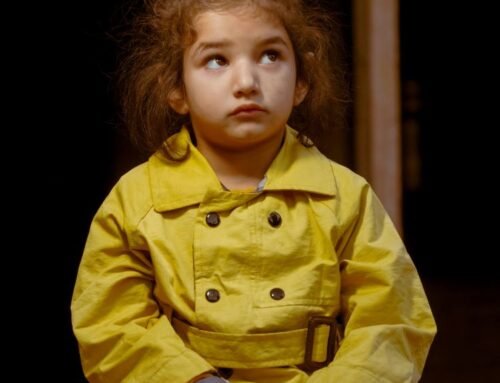 In a previous post, we talked about the effects of childhood emotional neglect and how to recognize it. As an adult, realizing that you dealt with emotional neglect as a child can explain some of the emotional outcomes you’re facing now.
In a previous post, we talked about the effects of childhood emotional neglect and how to recognize it. As an adult, realizing that you dealt with emotional neglect as a child can explain some of the emotional outcomes you’re facing now.
For example, if you’re someone who has been made fun of for your high sensitivity, you think something’s wrong with you, or you have low self-confidence, it’s always a good idea to consider where those issues come from.
If you have already recognized that you were emotionally neglected as a child, you might ask yourself, “what now?”
Thankfully, you don’t have to live the rest of your life dealing with the scars of neglect.
Let’s go over a few effective ways that you can begin healing from childhood emotional neglect, and how you can implement them into your life.
Learn to Accept Yourself
 People who have gone through emotional neglect as a child often have a hard time asking for help because they don’t feel worthy of it. It’s also not uncommon for them to assume others won’t accept them for who they are.
People who have gone through emotional neglect as a child often have a hard time asking for help because they don’t feel worthy of it. It’s also not uncommon for them to assume others won’t accept them for who they are.
That’s usually because you haven’t accepted yourself. In some cases, you might feel you don’t even really know your true self. When you learn to accept your needs and your own emotional style, you can have more confidence in telling others what you need, and focusing more on the positive relationships in your life.
Accept the fact that your feelings matter just as much as anyone else’s. Doing so will help you speak up more in your friendships and even familial relationships as you start to take charge of your own life.
Express Your Needs
Once you’ve accepted who you are and what you need, expressing those needs is essential to the healing process.
 People who suffered from childhood emotional abuse are used to keeping their emotions walled off. But, once you accept them, it can become nearly impossible not to want to share!
People who suffered from childhood emotional abuse are used to keeping their emotions walled off. But, once you accept them, it can become nearly impossible not to want to share!
That doesn’t mean you necessarily need to change much. Express yourself every day in normal, simple conversations. It could be speaking up about an opinion you have, or talking about how something made you feel.
As the people in your life start to see those subtle changes, they’re likely to respond with more respect and an appreciation for your self-confidence.
Know How to Self-Soothe
You might feel you’ve been on your own for years if you experienced emotional neglect as a child. You didn’t get the soothing comfort from your parents that you deserved. Now, however, you can learn how to self-soothe.
Knowing that you can calm yourself down and provide comfort is another great way to boost your overall confidence. But it will also make you feel better when the lingering effects of neglect threaten to take hold of your thoughts.

Self-soothing practices are different for everyone. If you didn’t learn what soothing looks like from the adults in your life as a kid, it’s okay to try different methods now to find what works for you. Some common practices for self-soothing include:
- Positive self-talk
- Conscious breathing/meditation
- Visualization
- Self-compassion
You can even self-soothe by showing kindness and compassion to others. Doing something good for someone else is a wonderful way to feel better and more confident in yourself.
Of course, the most important thing to keep in mind is that you don’t have to go through the healing process on your own. Having a support group around you is crucial, but a therapist can also help you with more skills to manage your healing. If you’re in a place where you’re ready to take the reins of your life and truly begin healing from childhood emotional neglect, feel free to contact me.
To find out more about trauma treatment, click here.





